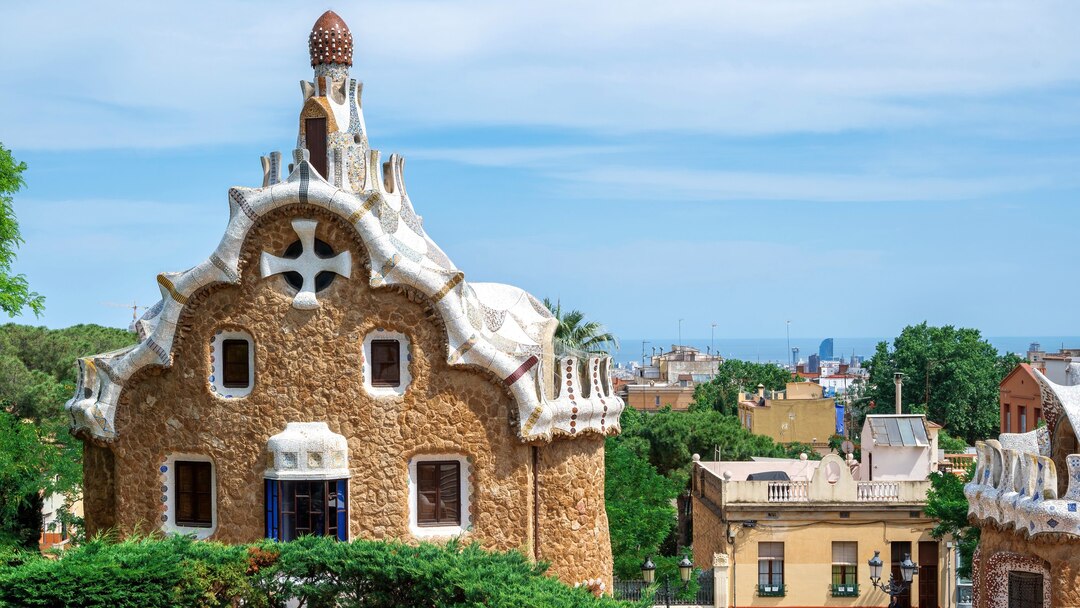There’s a place in the south of Spain where time seems to bend with the sun. Where the heat slows your step, the scent of orange blossoms clings to narrow alleyways, and flamenco is not a performance but a language spoken deep from the chest.
That place is Andalusia — not a region you visit, but a feeling that wraps around you, warm and haunting, like an echo from another century.
This isn’t the Spain of postcards or tour brochures. This is Spain’s soul, simmering in Moorish courtyards, flickering in candlelit taverns, and baked into the rhythm of siestas and serenades.
If you’re chasing beauty that doesn’t need to shout, Andalusia whispers your name.
Where the Past is Never Gone
History in Andalusia isn’t dead — it walks beside you.
In Granada, the Alhambra rises like a mirage above the city, carved with impossible detail. You don’t just see it; you feel the centuries pressing in — Arabic poems etched into archways, fountains murmuring in hidden courtyards, stars reflected in mosaic tiles.
There’s no velvet rope. No sterile barrier. You walk where sultans once walked. You touch stone that remembers conquest and loss.
In Cordoba, the Mezquita is a miracle of coexistence. A mosque built into a cathedral, arches upon arches, striped red and white like the inside of a shell. You stand in silence, humbled by the idea that such beauty can come from contrast.
And in Seville, the cathedral holds the tomb of Columbus — ambitious, defiant, and still searching for something across the ocean of time.
Streets Made for Wandering
No one rushes in Andalusia. Why would they?
You walk through sun-washed white villages, perched on hills like dreams made of lime and light. Ronda, with its dramatic bridge straddling a deep gorge, makes you stop and stare. The cliffs, the wind, the echo of your own thoughts — it’s a place where poets go quiet.
Mijas is like a watercolor come to life, with blue pots lining the walls and donkeys trotting down cobbled streets. Yes, it’s quaint. But also timeless.
And then there’s Cadiz, salty and rebellious, with its Atlantic views and flaking colonial facades. You eat grilled sardines by the sea and understand that simplicity is a kind of luxury.
Each town is a story. Each plaza, a theater. And you — the wide-eyed traveler — are both guest and witness.
Flamenco: Not a Dance, But a Cry
In Andalusia, you don’t watch flamenco. You feel it.
It might happen in a cave restaurant in Granada, where the walls shake with the stomp of heels and the singer’s voice tears through the silence like thunder.
Or in a small tavern in Seville, where locals close their eyes as the guitar weeps and the dancer moves like a flame refusing to be extinguished.
Flamenco is not polished or perfect. It’s raw, emotional, and defiantly alive. It’s joy and grief and longing — everything human, poured out in rhythm and sweat.
You leave with your chest cracked open and your blood moving differently.
The Light, The Heat, The Shadows
There’s something almost mythic about the Andalusian sun.
In the early morning, it kisses rooftops and fills narrow alleys with gold. By noon, it blazes white-hot, forcing stillness. Locals retreat. Shutters close. Even the cats disappear into shade.
And in the evening, when the sun slips behind the Sierra Nevada, the world exhales. Terraces fill. Wine flows. Laughter rises. The light turns everything to honey, and the streets become a canvas for shadows and lanterns.
You begin to understand the ritual of slowness. It’s not laziness — it’s wisdom. When the sun commands respect, you obey. And in that surrender, you discover something lost in faster places: presence.
Food Like Folk Songs
Andalusian food is simple, soulful, and made to be shared.
You’ll never forget your first bite of salmorejo — colder and creamier than gazpacho, garnished with jamón and hard-boiled egg. It tastes like summer’s essence, chilled and bright.
Or tortilla española, thick and golden, cooked slowly with onions until it tastes like home. Paired with a slice of rustic bread, it becomes your favorite comfort.
And of course, the tapas. Not just a way to eat, but a way to live — trying little bits of everything, sharing plates and stories, stretching a meal into hours.
You’ll sip sherry in Jerez, dry and amber, in a centuries-old cellar. You’ll learn that olives don’t come from a jar, but from trees kissed by dust and sun.
Every bite in Andalusia carries history. Every meal, a conversation between earth and table.
Desert and Olive, Sea and Sky
Andalusia isn’t just cities and towns. It’s landscapes that surprise you.
The olive groves roll on forever — gnarled trees lined up like soldiers under a pale sky, their roots tangled in generations. You begin to understand why olive oil here isn’t a condiment, but a sacred thing.
Drive further, and the land turns to desert, red and bone-dry. In the Tabernas Desert, old spaghetti westerns were filmed, and the silence is so deep you can hear the land breathe.
But Andalusia also kisses the sea. The Costa de la Luz lives up to its name — the Coast of Light. Wind surfers skim the waves. Fishermen pull nets from turquoise waters. Children dig castles into sand as fine as sugar.
There’s something wild and free in the landscapes here. Nothing feels polished. Everything feels real.
The People of the South
It’s not just the place. It’s the people.
Andalusians are warm, expressive, and unapologetically proud of who they are. They speak with hands, eyes, and laughter that comes easily. They’ll talk to you in Spanish, even if you don’t speak it — because conversation is about connection, not grammar.
They celebrate loudly and love deeply. They honor tradition but welcome curiosity. They’ll invite you in, not because they have to, but because it’s who they are.
You begin to see that Andalusia is not a destination. It’s a spirit.
Leaving, but Never Really
When you leave Andalusia, it doesn’t leave you.
You’ll find yourself tapping your fingers in flamenco rhythm. You’ll crave oranges that taste like sunlight. You’ll remember that time can slow down and still be full.
You’ll miss the sound of heels on stone, the flutter of laundry in alleyways, the echo of church bells across sunlit plazas.
But mostly, you’ll miss the feeling — of having been somewhere honest, unfiltered, and impossibly beautiful.
And when the world gets loud again, you’ll close your eyes, take a slow breath, and hear Andalusia whisper:
“Come back. The door is always open.”

